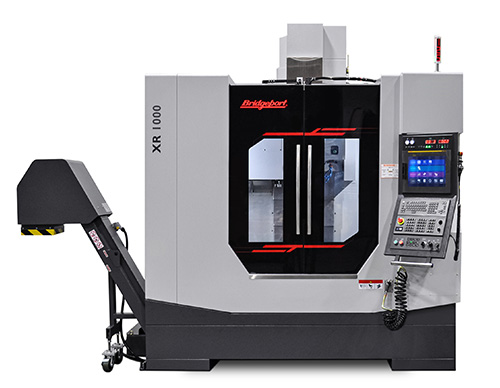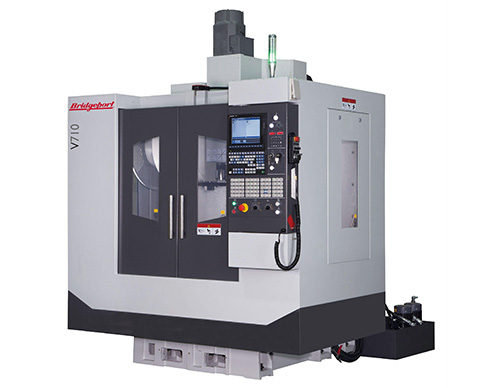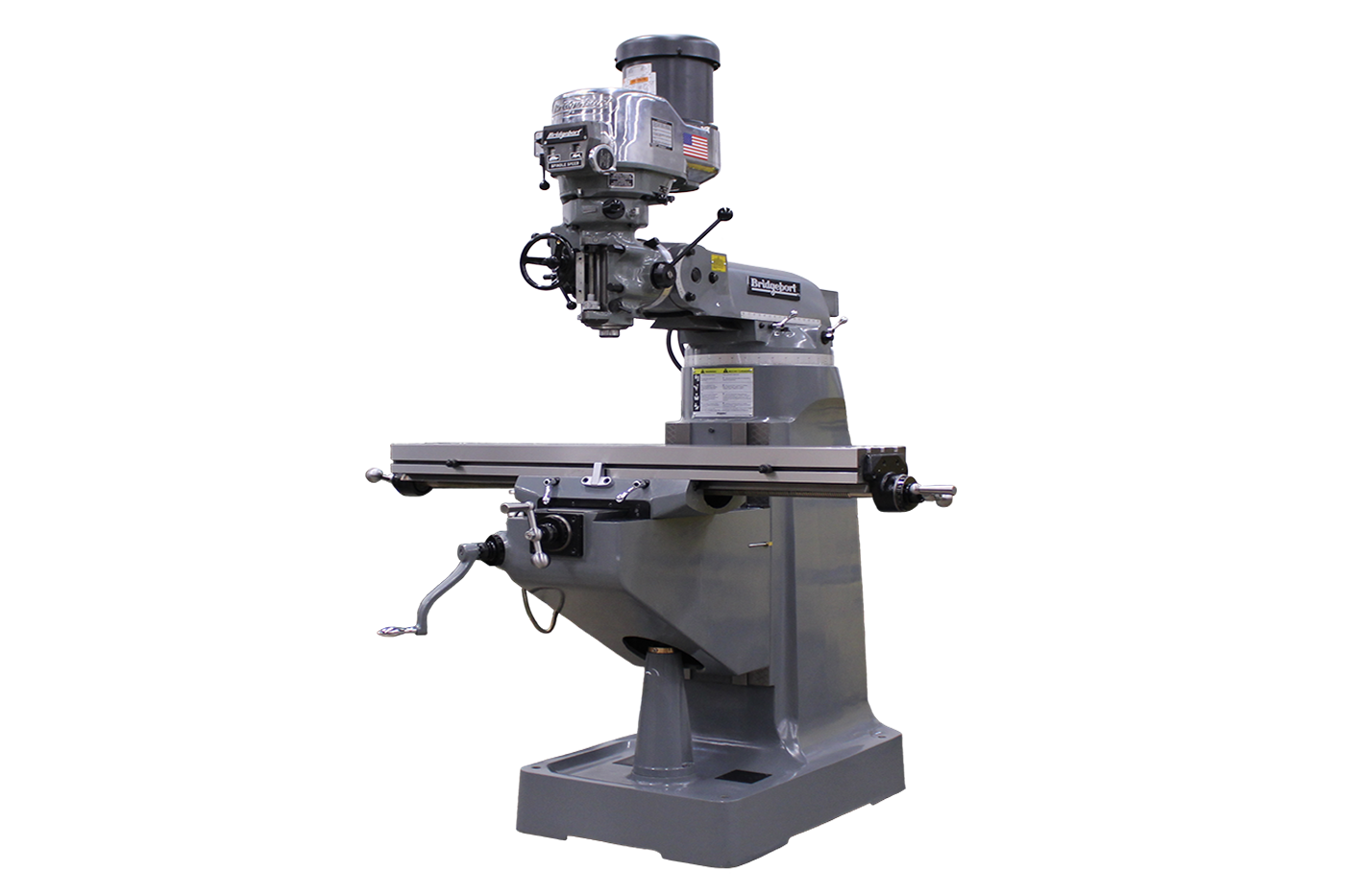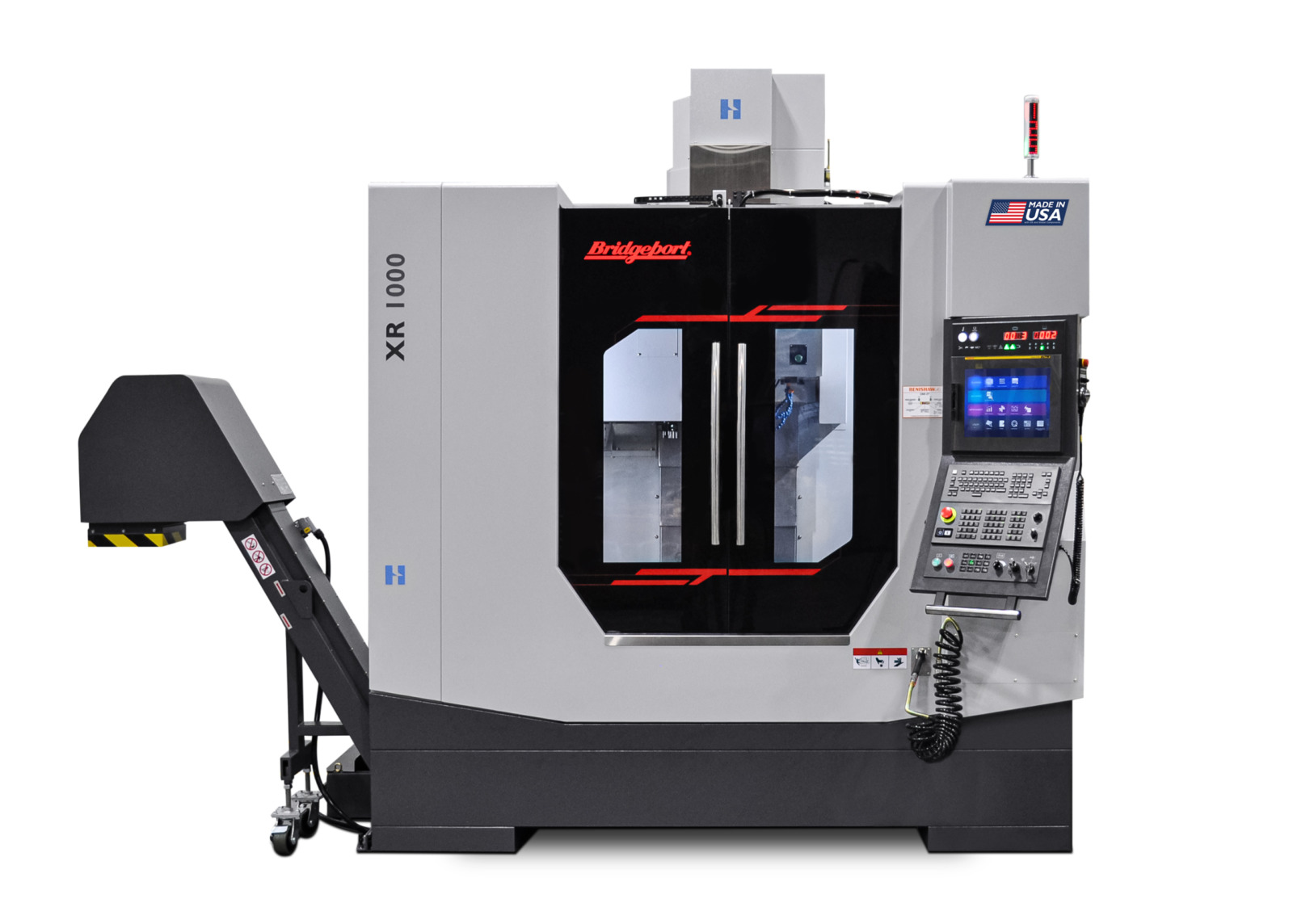Bridgeport Machine Tools has been a prominent name in the manufacturing industry since the early 1930s. Known for its high-quality milling machines, Bridgeport quickly became a staple in machine shops and manufacturing facilities across the United States and around the world. The Bridgeport Series I Milling Machine, in particular, set new standards for performance and precision, making it a favorite among machinists and manufacturers.
Over the years, Bridgeport has continued to innovate, expanding its product line to meet the evolving needs of various industries. Today, Bridgeport milling machines are renowned for their exceptional design, precision, and versatility. This article will explore the features and benefits of Bridgeport milling machines, highlight the different types available, and showcase their applications in various industries.
From small workshops to large-scale manufacturing plants, Bridgeport machines offer unparalleled quality and reliability. By delving into their key features, technical specifications, and the wide range of operations they can perform, this will provide a comprehensive overview of why Bridgeport milling machines are the go-to choice for many professionals in the field.
The Design Excellence of Bridgeport Machines
Bridgeport milling machines stand out due to meticulous engineering and their superior quality standards. They are built to endure rigorous use, ensuring longevity and reliability. Each machine is robustly built enhancing vibration dampening during operation, increasing precision. The ergonomic design allows operators to easily access controls and perform operations, decreasing operator fatigue.
These machines feature advanced technology that improves their efficiency. The incorporation of digital readouts, power draw bars, servo motors, and more helps reduce human error and enhance operator efficiency. This design focus ensures that Bridgeport machines perform to the highest standard while making the operator’s job easier.
Key Benefits – Precision and Versatility
- High Precision: Bridgeport machines are known for their accuracy. which is crucial for detailed work requiring tight tolerances.
- Versatility: Capable of handling a wide range of milling applications, from simple cuts to complex geometries.
- Durability: Robust build with high-quality castings and materials to ensure long-term performance.
- User-Friendly: Easy-to-use controls and ergonomic design ensure intuitive operation.
- Efficiency: Advanced features like digital readouts, latest CNC controls, and productivity-enhancing options.
These benefits demonstrate why Bridgeport milling machines are a preferred choice in various industries, offering unmatched quality and performance.
Overview of Vertical and Horizontal Milling Machines
Bridgeport offers two main types of milling machines, vertical and horizontal. Our vertical milling machines range from manual 2-axis knee mills to 4-axis vertical machining centers. Ideal for precision work such as slotting and grooving, they are used in applications that require speed and precision.
Our Horizontal machining centers have a spindle that is horizontally oriented with the spindle moving up and down the Y-axis. These machines are better suited for heavy-duty, high-horsepower applications.
Advantages of Manual vs. CNC Models
Manual Models:
- – Hands-On Control: Offers tactile feedback and greater operator control.
- – Simplicity: Easier to maintain with fewer electronic components.
- – Cost-Effective: Generally cheaper than CNC models, making them accessible for small shops.
CNC Models:
- – Automation: Capable of performing complex applications with minimal human intervention.
- – Consistency: Ensures uniformity in repeated operations reducing errors.
- – Efficiency: Speeds up production time for large-scale operations.
By understanding the different types of milling machines and their specific advantages, you can choose the right machine for your specific needs. Whether you require the precision of a vertical machine or the power of a horizontal one, Bridgeport has you covered.
Common Uses in Manufacturing and Metalworking
Bridgeport milling machines are highly versatile, making them a staple in various industrial sectors. In manufacturing, these machines are often used for creating parts with precise dimensions and complex shapes. Their ability to perform repetitive and intricate tasks makes them ideal for job shops and production environments.
In the metalworking industry, Bridgeport milling machines excel at tasks such as milling, contouring, and finishing metal parts. They can handle a wide range of materials, including aluminum, steel, brass, and more. This adaptability allows these machines to be integrated into various phases of metalworking processes, from initial cuts to final finishing, ensuring high-quality outcomes.
Specific Industry Examples
- Automotive: Used for manufacturing engine parts, chassis components, and more.
- Aerospace: Essential for creating aircraft parts that require precision and durability.
- Medical Device Manufacturing: Ideal for producing detailed parts used in medical equipment and instruments.
- Construction: Utilized for fabricating components for building and infrastructure projects.
- Electronics: Employed in making chassis and housing for electronic devices.
Importance of Precision and Rigidity
Bridgeport milling machines are esteemed for their precision and rigidity. Precision is vital for producing parts with exact specifications and tight tolerances. These machines achieve this through high-quality components that reduce play and backlash, ensuring accurate positioning of the cutting tool. This is particularly crucial in industries like aerospace and medical devices, where even a minor deviation can lead to significant issues.
Rigidity is another signature characteristic of Bridgeport machines. A rigid structure allows for better control of the cutting process, minimizing vibrations that could affect the quality of the cut. This rigidity comes from robust materials and a well-engineered design that maintains stability under various loads and speeds. These attributes make Bridgeport machines reliable and efficient for high-precision work.
Versatility in Various Operations
- Drilling: Accurate drilling of holes in a variety of materials.
- Tapping: Adding threads to pre-drilled holes efficiently.
- Boring: Enlarging existing holes with great precision.
- Slotting: Creating slots and grooves with consistent accuracy.
- Facing: Flattening the surface of a workpiece for a smooth finish.
- Contouring: Shape and create complex surfaces into a workpiece
These versatile operations make Bridgeport milling machines indispensable tools in any machine shop, offering a range of functionalities without compromising on quality or efficiency.
Conclusion
Bridgeport milling machines have established themselves as a cornerstone in various industries, thanks to their exceptional design, precision, and versatility. From manufacturing to metalworking, these machines offer unparalleled reliability and performance, meeting the demands of even the most challenging tasks. The different types of models—whether vertical, horizontal, manual, or CNC—cater to diverse needs, ensuring that there’s a Bridgeport machine for every application.
Their robust construction and high-quality components ensure longevity and minimal downtime, making them a cost-effective investment for any business. The ability to perform a wide array of secondary operations further enhances their value, providing multifunctional capabilities in a single machine. This makes Bridgeport milling machines an indispensable asset in any production environment.
If you’re looking to upgrade your milling capabilities or add a reliable workhorse to your shop, consider exploring the extensive range of models offered by Bridgeport Machine Tools. Their machines are designed to meet your precise needs while delivering consistent, high-quality results. Visit the Bridgeport Machine Tools website today to discover the perfect advanced milling machine for your operations and take your productivity to the next level.











